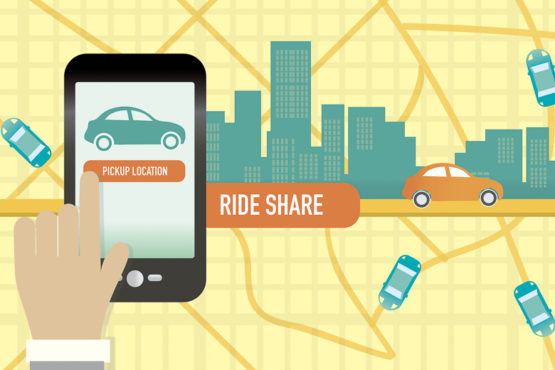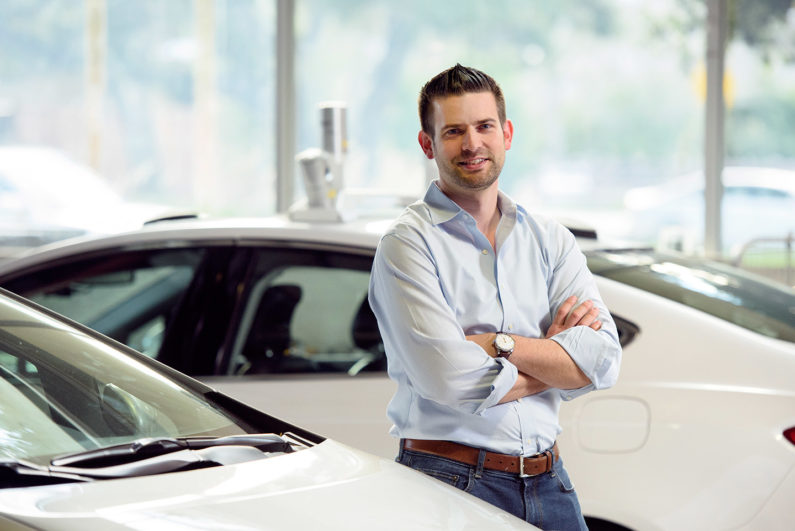Researchers from Stanford, MIT and the University of Washington find ride-share drivers discriminate based on race and gender
New research shows that ride-share users wait longer for pickups and are more likely to have their rides canceled if they appear to be African American.

App-based ride-sharing services, while innovative in other ways, seem to fall in line with an established trend of racial discrimination seen in the broader ride-hailing industry. (Image credit: JDawnlnk/ Getty Images)
Research that involved tracking ride-share data for white and African-American customers found that ride-share drivers in Boston and Seattle were more likely to cancel on African-American travelers than white travelers, and that African-Americans had to wait longer to be picked up. These findings do not report on the practices of these ride-share services as a whole but only the actions of individual drivers.
The results, published as a working paper in the National Bureau of Economic Research, came out of collaboration between researchers from Stanford, MIT and the University of Washington.
“Frankly, that discrimination exists was not surprising after all the evidence of discrimination elsewhere,” said Stephen Zoepf, executive director of the Center for Automotive Research at Stanford and one of the authors on the paper. “It essentially confirmed our suspicions more than anything else. I think that the magnitude of the discrimination and the cancellation rates was surprising to me.”
Tracking discrimination
In the first part of the study, which was carried out in Seattle by Don MacKenzie and Yanbo Ge of the University of Washington, eight research assistants – two African-American females, two African-American males, two white females and two white males – hailed rides from designated areas at specific times of day.

Stephen Zoepf is executive director of the Center for Automotive Research at Stanford. (Image credit: L.A. Cicero)
Of the 581 app-hailing trips recorded, the African-American travelers waited on average 20 percent longer than white travelers to have their ride accepted on Lyft or UberX. It also took about 30 percent longer for African-American travelers to be picked up than white travelers when they used UberX. There were no significant differences in wait times using Lyft.
Zoepf led a second arm of the research in Boston, which started when he was a postdoctoral fellow at MIT working with Christopher R. Knittel, co-author of the study. In this experiment, the researchers created two profiles for each traveler, one with a stereotypically African American name and another with a stereotypically white name. The travelers involved could pass for either race in physical appearance. In addition to the timing data, the researchers also recorded ride cancellations for the 911 trips recorded.
In Boston, the team found that travelers with African-American names faced double the cancellation rate on UberX compared with travelers with white-sounding names. Areas with low population density showed a particularly dramatic disparity, with males using African-American names experiencing more than three times as many cancellations while using UberX as males using white names. Overall, approximately 15 percent of their rides were canceled. This may indicate that drivers who chose to work in those areas are more likely to be biased against African-Americans.
Lyft did not have the same evidence of cancelation on African-American travelers, but the researchers said this could be due to the fact that Lyft drivers see a first name as soon as a ride is available for selection, whereas Uber drivers see the first name only after they’ve accepted a ride.
Although not the focus of the study, the researchers also found a significant difference in the trip data of female versus male travelers in Boston. On average, female travelers were driven 5 percent further than males, given the same start and finish location. Anecdotal evidence from the female passengers led the authors to surmise that this may have resulted from a combination of flirtation and profiteering.
“The patterns of discrimination were quite clear and consistent in both cities – and one can only assume it’s happening all across the country in other markets,” said Knittel, who is a professor at the MIT Sloan School of Management. “The study has found major areas of racial discrimination within this new industry. It’s quite concerning.”
A history of discrimination in ride hailing
App-based ride-sharing services, while innovative in other ways, seem to fall in line with an established trend of racial discrimination seen in the broader ride-hailing industry.
“The fundamental issue to me is whether ride-sharing services are really fixing historical issues of discrimination that exist with taxi cabs,” Zoepf said. “That’s one of the things the Seattle portion of the study focused on. They showed there is substantial discrimination in the taxi system.”
Additional work by the UW researchers found that taxi drivers in Seattle passed by African-American customers more often than white customers.
A crucial aspect of this research is that all the findings focus on the behavior of the ride-share drivers, not the companies themselves.
“I don’t think that this shows discrimination on the part of the operators,” he said. “This is not Uber discriminating or Lyft discriminating. This is a reflection of the decisions of individuals in society.”
Potential solutions and complications
This research does not describe bias on the part of these companies as a whole, but the most effective solutions to rider discrimination might originate from large-scale changes to the way the services operate, the authors say.
“Though completely eliminating discrimination is unfortunately impossible, there are steps these services can voluntarily take to minimize service bias against minorities,” said MacKenzie, who is an assistant professor within the Department of Civil and Environmental Engineering at the University of Washington. “We hope the companies take positive steps to address these problems.”
In the paper, the researchers offer several suggestions, including using a passcode to identify passengers instead of a name, more severe consequences for cancellations (including situations where drivers sit in place to prompt the traveler to cancel), audits from outside partners to analyze driver behavior and fixed-price fares to discourage extended trips with female travelers, a practice which Uber has begun implementing.
The solutions, however, are far from simple.
“It’s one of those situation where you step on the carpet here and bubbles pop up over here,” said Zoepf.
For example, this research showed no evidence of a difference in star rating for the various passengers. Zoepf considers this an encouraging result but added that it could originate from drivers acting on their biases before a ride even starts. Counterintuitive scenarios like this may cause actions designed to reduce discrimination to backfire.
“Potentially, you could envision a situation where people who have a gender or racial bias in their heart would leave lower feedback levels for a certain gender or race,” said Zoepf. “Over time that would affect a person’s ability to do business on this platform at all, with any driver.”
Zoepf emphasized that the work is preliminary, as it only takes into account about 1,500 rides in two cities out of the roughly one billion rides Uber and Lyft have completed in many countries. What the results do indicate clearly is the need for more comprehensive analysis of these services and how they reflect society, he said.
“Transportation is a very complex social system,” said Zoepf. “It’s the basis of economic opportunity, it’s the basis of social interaction, it’s the basis of many fundamental things that we do in life. It’s very important to make this system equitable.”
This research was funded by the University of Washington Royalty Research Fund.
